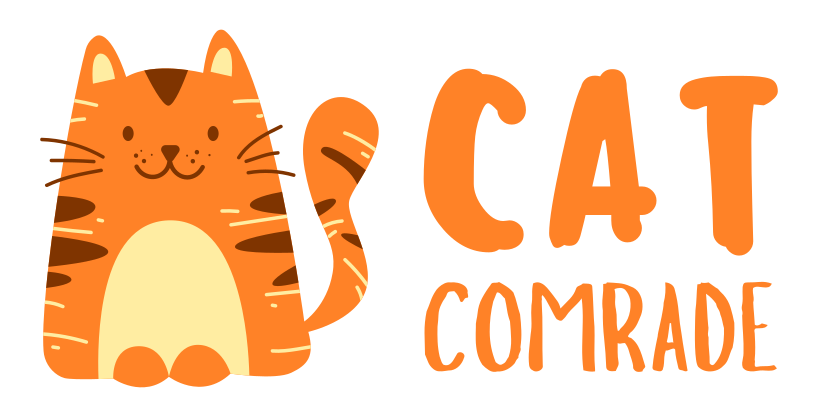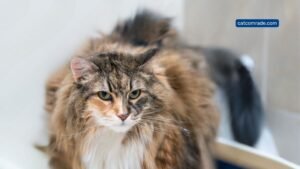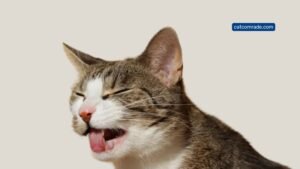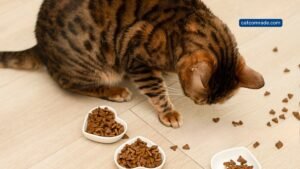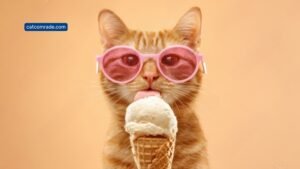Can I Feed My Cat Peanut Butter: Safe Treat or Health Risk?
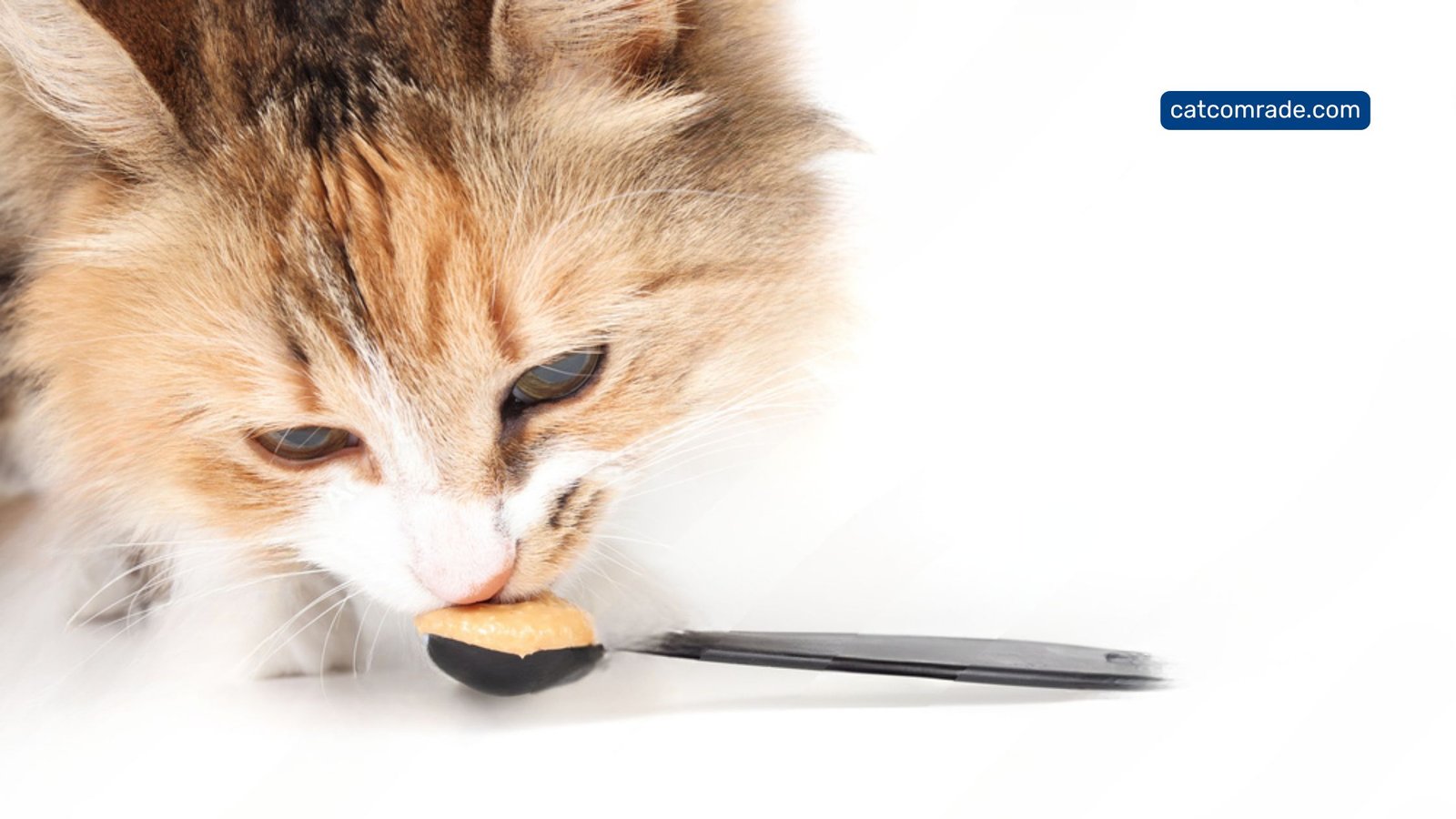
You might be wondering, “Can I feed my cat peanut butter?” It’s a common question because peanut butter is a popular treat for many people. But when it comes to your furry friend, you want to be sure it’s safe.
You care about your cat’s health and happiness, so it’s important to know what’s okay to share and what’s not.
Keep reading to find out if peanut butter can be a tasty and safe snack for your cat—or if it’s better left off their menu.
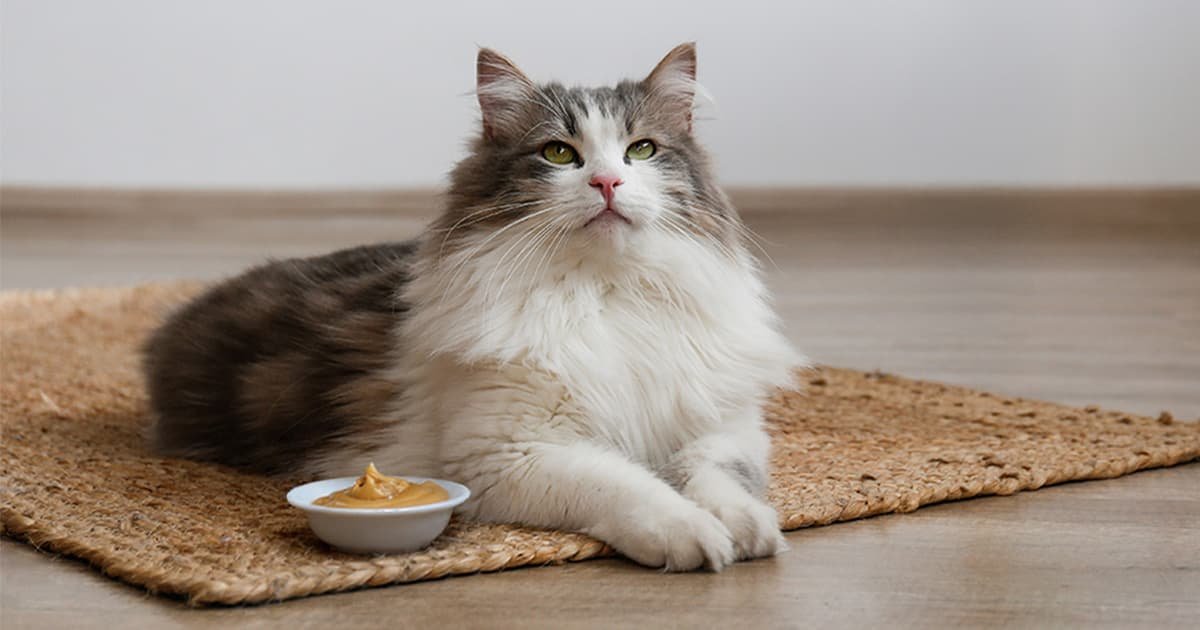
Credit: www.diamondpet.com
Cats And Peanut Butter
Cats are curious animals. They often try new foods that catch their attention. Peanut butter is one such food many about. Can cats eat peanut butter safely?
Understanding what is in peanut butter and why cats might like it helps answer this question.
Peanut butter is a thick, creamy spread made from peanuts. It has a strong smell and taste that some cats find interesting.
Knowing the ingredients and effects on cats is important before feeding them peanut butter.
Common Ingredients In Peanut Butter
Peanut butter usually contains peanuts, oil, salt, and sugar. Some types have added flavors or preservatives.
Natural peanut butter has fewer ingredients and no added sugar or salt.
Peanuts are rich in protein and fat. These nutrients are good for cats in small amounts. But salt and sugar can harm cats.
Xylitol, a sweetener in some peanut butters, is toxic to cats and must be avoided.
Why Cats Might Like Peanut Butter
Peanut butter has a strong smell that attracts cats. Its creamy texture is fun for them to lick.
The fat content also appeals to cats’ taste buds.
Cats enjoy new smells and tastes. Peanut butter offers both. Some cats show interest because it is unusual and different from their regular food.
Health Risks Of Peanut Butter For Cats
Peanut butter might seem like a fun treat to share with your cat. Yet, it carries some health risks that pet owners must know.
Cats have different bodies and needs than humans. What is safe for people is not always safe for cats. Understanding these risks helps keep your cat healthy and happy.
Toxic Ingredients To Avoid
Some peanut butter brands contain xylitol, a sweetener highly toxic to cats. Even tiny amounts can cause severe problems.
Salt and sugar levels in peanut butter can harm your cat’s kidneys and heart. Always check ingredient labels before offering any peanut butter to your pet.
Avoid any product with artificial sweeteners or excessive additives.
Allergic Reactions And Sensitivities
Cats can be allergic to peanuts or other peanut butter ingredients. Signs include itching, swelling, or difficulty breathing.
Allergic reactions can be mild or very serious. Watch your cat closely after any new food introduction.
Stop feeding peanut butter if any unusual symptoms appear. Consult a vet for proper allergy testing and advice.
Digestive Issues And Obesity Concerns
Peanut butter is high in fat and calories. Feeding too much may cause stomach upset, diarrhea, or vomiting. Regular treats with peanut butter can lead to weight gain and obesity.
Obesity increases the risk of diabetes and joint problems in cats. Treat peanut butter as an occasional snack, not a regular diet item.
Always monitor your cat’s reaction and health after feeding.
Safe Peanut Butter Options
Peanut butter can be a tasty treat for cats but not all types are safe. Some peanut butter brands have ingredients that harm cats.
Choosing the right peanut butter is key to keeping your cat healthy. Safe options have simple and natural ingredients without harmful additives.
Look for peanut butter with no added sugar, salt, or xylitol. Xylitol is very toxic to cats even in small amounts. Natural or organic peanut butter often fits these requirements.
Always check the label carefully before feeding your cat peanut butter.
Choosing Cat-friendly Peanut Butter
Pick peanut butter that has only peanuts as the main ingredient. Avoid brands with sweeteners or artificial flavors.
Organic peanut butter is usually free from chemicals and additives. Plain, unsalted peanut butter is the safest choice for cats.
Testing a small amount first can help spot allergies early.
Portion Control And Frequency
Peanut butter should be an occasional treat, not a regular meal. A tiny amount, like a pea-sized dollop, is enough. Too much peanut butter can cause stomach upset or weight gain.
Limit treats to once or twice a week. Always watch your cat after giving peanut butter for any signs of discomfort.
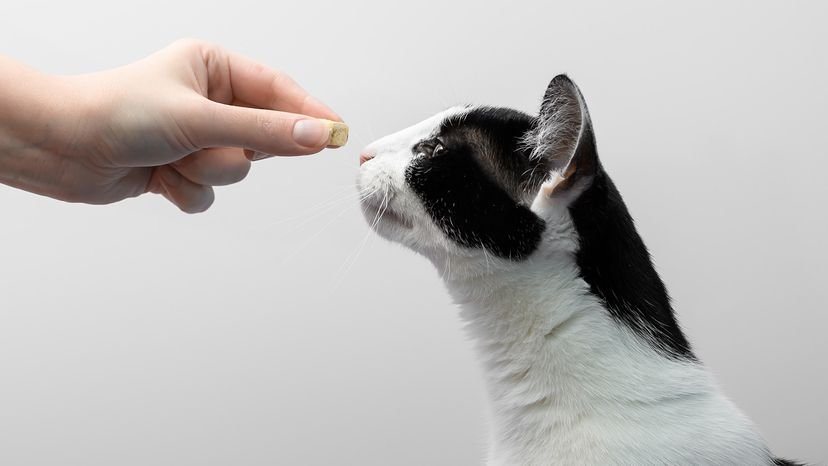
Credit: animals.howstuffworks.com
Alternatives To Peanut Butter For Cats
Peanut butter is a popular treat for humans, but it may not be the best choice for cats. Many cats have trouble digesting peanut butter.
It can also contain ingredients that are harmful to them. Finding safe and tasty alternatives is important to keep your cat happy and healthy.
Cats enjoy different kinds of treats that are both healthy and delicious. These options provide good nutrition without risks. You can also make homemade treats that suit your cat’s tastes and dietary needs.
Healthy Treats Cats Enjoy
Small pieces of cooked chicken or turkey make excellent treats. They are rich in protein and easy to digest. Plain canned tuna or salmon can also be a tasty snack.
Avoid giving fish with added salt or spices. Catnip and cat grass offer a fun and safe option. Freeze-dried meat treats are convenient and loved by many cats.
Homemade Cat Treat Recipes
Mix canned tuna with a little plain yogurt to make a soft treat. Combine cooked chicken with pumpkin puree for a fiber-rich snack.
Use oat flour and mashed banana to bake simple cat biscuits. Always use pet-safe ingredients and avoid sugar or salt. Homemade treats let you control what your cat eats and keep them safe.
When To Consult A Veterinarian
Knowing when to consult a veterinarian is important if your cat eats peanut butter. Cats can react differently to new foods. Some may handle it fine.
Others might have problems. Watching your cat closely after eating peanut butter is key. Early action can prevent serious health issues.
Signs Of Peanut Butter Intolerance
Some cats show signs of intolerance after eating peanut butter. Look for vomiting or diarrhea. Watch for itching or swelling around the mouth.
Loss of appetite and lethargy can also happen. If your cat shows these signs, stop feeding peanut butter immediately. Contact your vet for advice on the next steps.
Emergency Situations
Certain symptoms need urgent veterinary care. Difficulty breathing or choking requires immediate help. Severe swelling of the face or throat is dangerous.
Uncontrolled vomiting or diarrhea can cause dehydration quickly. If your cat collapses or has seizures, call the vet right away. Quick response saves lives in emergencies.

Credit: www.purina.com
Frequently Asked Questions
Can Cats Safely Eat Peanut Butter Occasionally?
Yes, cats can eat peanut butter in small amounts. It should be plain, unsalted, and free from xylitol. Too much can cause digestive issues or obesity, so offer it only as a rare treat.
Is Peanut Butter Toxic To Cats?
No, peanut butter itself is not toxic to cats. However, ingredients like xylitol, a sweetener found in some peanut butters, are highly toxic. Always check labels and avoid peanut butter containing harmful additives.
How Much Peanut Butter Can I Give My Cat?
Limit peanut butter to a tiny lick or less than half a teaspoon. Overfeeding may cause stomach upset or weight gain. It’s best used as an occasional treat, not a regular part of their diet.
What Are The Risks Of Feeding Cats Peanut Butter?
Feeding cats peanut butter risks include allergies, digestive upset, and obesity. Peanut butter is high in fat and calories,
which can harm your cat’s health if overfed. Always monitor your cat after giving peanut butter for any adverse reactions.
Conclusion
Peanut butter is not toxic but not ideal for cats. It has high fat and sugar, which can upset their stomach.
Small amounts may be safe, but avoid making it a habit. Always check for xylitol, a harmful ingredient for pets.
Stick to cat-friendly treats for better health. Your cat’s diet needs careful attention. Choose foods made for their needs.
Keep treats occasional and simple. That way, your cat stays happy and healthy.
